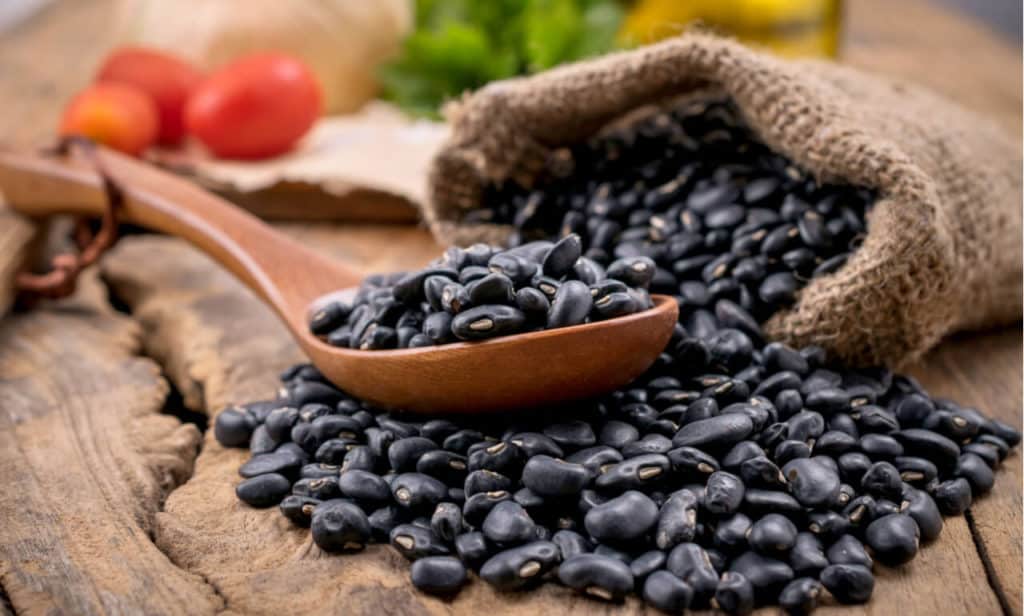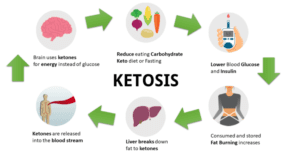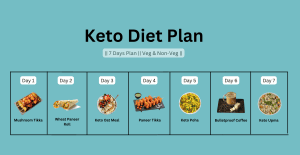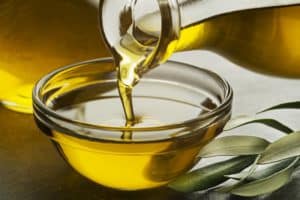The Black beans Fall into the legume family. The black turtle bean is a small, shiny variety of the common bean (Phaseolus vulgaris) especially popular in Latin American cuisine, though it can also be found in the Cajun and Creole cuisines of south Louisiana.
Similar to the varieties of the common bean, it is native to the Americas but has been introduced around the world. And it is also used in Indian cuisine, Tamil cuisine, where it is known as karuppu kaaramani, and in Maharashtrian cuisine, where it is known as Kala Nevada.
The black turtle bean is often simply called the black bean (frijoles negros, Zaragoza, judía Negra, Porto negro, or Sarasota o habichuela Negra in Spanish; and feijão preto in Portuguese), although this terminology can cause confusion with other black beans.
Black beans are readily available, inexpensive legumes packed with protein. They can be enjoyed in many different ways as a tasty part of a nutritious eating plan. While being high in carbohydrates, they are in the form of resistant starch and fiber, which are digested slowly and can provide health benefits. Enjoy your beans in all kinds of dishes, from burritos to brownies.
Black Bean Nutrition Facts
The following nutrition information is provided by the USDA for 1/2 cup of canned black beans (120g).
- Calories: 109
- Fat: 0.4g
- Sodium: 461mg
- Carbohydrates: 20g
- Fiber: 8.3g
- Sugars: 0.3g
- Protein: 7g
- Carbs – They are high in carbohydrates, but they are also rich in fiber (both soluble and insoluble). Black beans also do not contain sugar. Instead, they have slowly-digested carbohydrates and resistant starch. This means that the carbohydrates in black beans are slowly converted to glucose, and some are not digested at all.
- Fats -They have very little fat, and most of the fat is polyunsaturated. A 1/2 cup serving of black beans has 90 milligrams of omega-3 fatty acids and 108 milligrams of omega-6 fatty acids.
- Protein – They are protein powerhouses, with 7 grams of protein in a 1/2 cup serving. You can enjoy black beans in many dishes to help fulfill your daily protein needs.
- Vitamins and Minerals -They are an excellent source of folate. This nutrient is responsible for producing red blood cells and plays a role in preventing neural tube defects during pregnancy. Additionally, black beans are an excellent source of manganese, magnesium, and thiamin. If you\’re a vegetarian who relies on beans as a source of iron, it is good to know that eating foods with vitamin C, such as citrus fruit and tomatoes, helps increase iron absorption.
Black beans in your diet-
You can find uses for black beans in every meal of the day. You can puree and use Beans as a spread or left whole in soups and chilis. They can even be an addition to baked goods such as brownies to add protein and fiber.
Use these beans as a side dish, as a sandwich or potato topper, or blended into a dip for vegetables. You can also add beans to salads and stews for additional iron, protein, and fiber. Another option is to swap black beans for other types of beans (such as pinto or great Northern) in recipes. You can also make avocado, sweet potato, and black bean tacos.
CAN YOU EAT BLACK BEANS ON A KETO DIET?
No. Beans will give you a decent amount of protein, a lot of carbs, and practically no fat. They’re great for other diets, but not for keto. We say avoid them. Furthermore, beans contain carbohydrates that are difficult for our bodies to process, so many people have trouble digesting them. This can result in gas, constipation, bloating, and stomach cramps. No fun.
Most types of beans such as red kidney beans, black beans, and pinto beans should be avoided on a standard ketogenic diet due to their high carbohydrate content. However, low-carb bean alternatives such as green beans and black soybeans can be enjoyed in moderation.
Beans have been a staple in our world’s diet for pretty much forever, but since many types of beans are high in carbohydrates, they have not been considered the best option for keto dieters. Fortunately, there are several low-carb beans and low-carb bean alternatives you can incorporate into your keto diet if you don’t want to give them up entirely.
To sum up, black beans are widely available over the world and are mostly used in the daily diets of people all around the world. They have good nutritional properties. However, they are not allowed on keto and low-carb diets.
Get started with your Weight Loss Journey today and take a step towards a healthy lifestyle! Stay tuned for inspiring Weight Loss Journeys, and Delicious Recipes! Also, don’t forget to follow us on Instagram for the daily dose of Health, and Wellness content!









